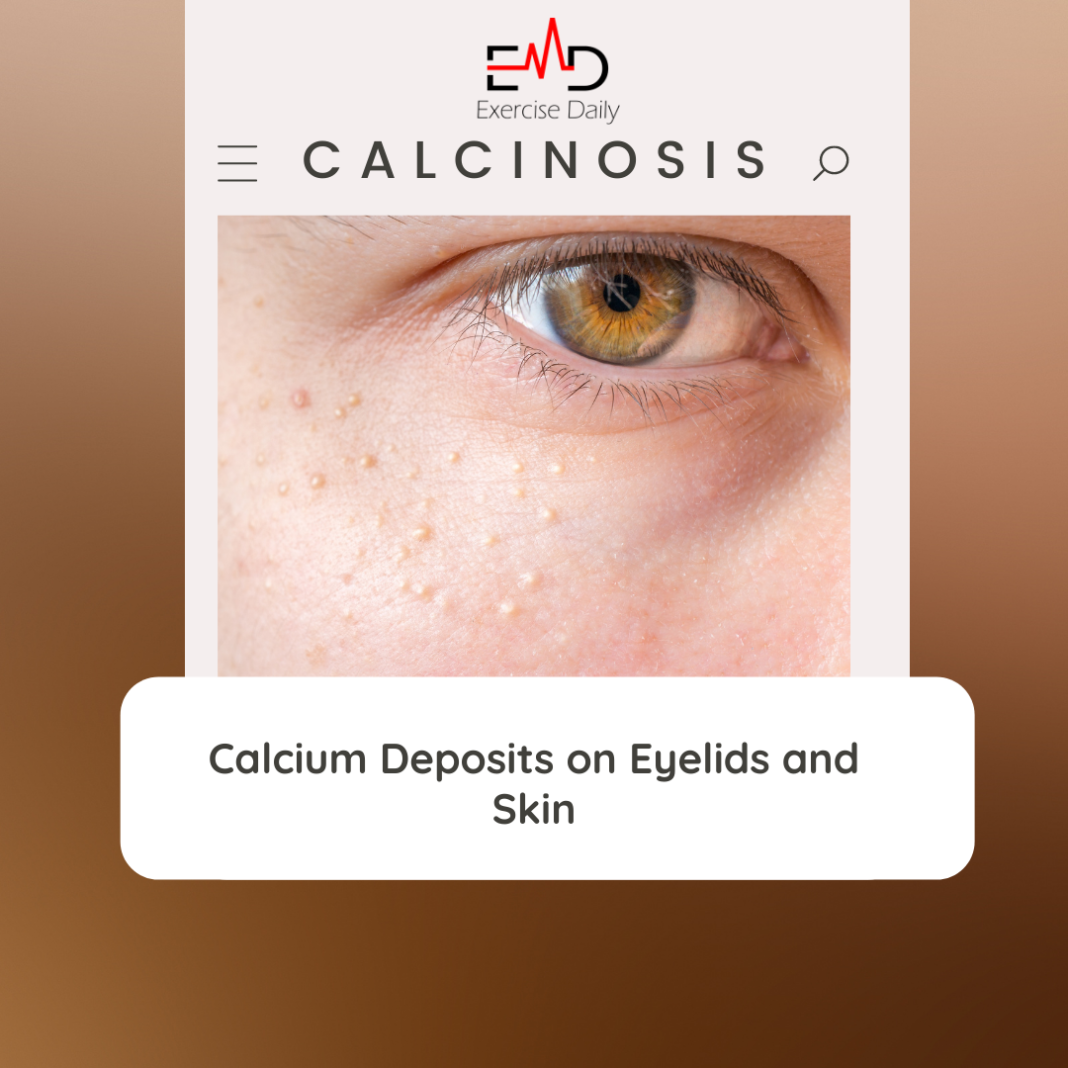Exercise Daily – Are you wondering about is ear infection contagious? If so, then read about it in this comprehensive guide.
When it comes to ear infections, they are most generally caused by a bacterial or viral infection that affects the middle ear. An ear infection is characterized by severe ear discomfort as its most typical symptom.
Although it is possible for adults to have an ear infection, it is more frequent for children to develop one. Ear infections are frequently self-resolving and do not require medical intervention. They may require medical attention if the condition is more serious.
In some cases, ear infections occur during or after a cold or contagious infection. It is for this reason that some individuals are concerned about whether or not ear infections are communicable.
Continue reading to learn about the most frequent causes of ear infections as well as techniques to prevent them.
Is Ear Infection Contagious?
It is not possible to “catch” ear infections, although it is possible to catch the viruses that cause them.
Viruses such as the common cold and flu, for example, are transferred when you inhale virus-containing droplets that have been dispersed by the cough or sneeze of an infected person or when you come into contact with an infected person.
You can potentially become infected by coming into contact with a surface where those droplets have landed.
Most ear infections are caused by bacteria that are ordinarily found in the respiratory tract therefore they are not communicable in the traditional sense.
The majority of the time, people develop them throughout their lives. They only cause ear infections under certain situations, such as when the eustachian tube is clogged.
Causes of Ear Infection

When you have an ear infection, it is a bacterial or viral infection that occurs right beneath the eardrum. Unpleasant and uncomfortable sensations might result from inflammation and fluid accumulation.
When the eustachian tube becomes enlarged or obstructed, fluid collects in the middle ear, causing it to become painful. For a variety of reasons, swelling or blockage can develop, including:
- Common colds
- Sinus infections
- Excess mucus
- Allergies
- Cigarette smoking or exposure to cigarette smoke
- Swollen adenoids
- Air pressure changes
- Changes in the climate or altitude
Children are more susceptible to ear infections due to the fact that their eustachian tubes are narrower and shorter than those of adults. After the age of 4 or 5, the likelihood of developing this condition decreases. So, now you know about “is ear infection contagious,” let’s take a look at its symptoms.
Symptoms of Ear Infection

The signs and symptoms in adults are straightforward. Ear discomfort and pressure, as well as fluid in the ear, are common symptoms of adult ear infections.
Hearing loss is also common. Children are more sensitive to a wider variety of symptoms. These are some indicators:
- tugging or pushing on the ear
- earache, especially when sleeping down
- difficulty to sleep
- crying a lot more than usual
- a loss of balance
- difficulty in hearing
- fever
- lack of appetite
- headache
Treatments for Ear Infection
Cold or warm compresses
Warm and cold compresses can both help to ease the discomfort of an ear infection. To treat an ear infection quickly and effectively, place a heated pad or a cold washcloth on the ear for 10 to 15 minutes, or alternate between hot and cold. This is especially effective for kids.
Neck exercises
The use of neck exercises that rotate the neck can help alleviate pressure in the ear canal caused by ear infections. How to perform neck-rotation exercises is as follows:
- Straighten your posture by sitting or standing up straight.
- Make a right turn of your neck so that it is parallel with your right shoulder. Hold the position for five to ten seconds.
- Repeat this exercise on the other side of your body.
- Raise your shoulders to the point where you appear to be reaching for your earlobes with them. Hold the position for five to ten seconds.
- Continue to do these exercises for the rest of the day.
Since we are discussing “is ear infection contagious,” it is important to use this exercise.
Mullein
Using oil extracted from the blossoms of the mullein plant, researchers have discovered that it is a good pain reliever for ear infection symptoms. Most health food stores have mullein tincture, which may be purchased alone or as a component in herbal ear drops.
Vitamin D
Vitamin D may appear to be unconnected to ear infections, but it has been shown to help the immune system function better in the past. The likelihood of contracting ear infections is lower when one’s immune system is in better shape.
According to a 2017 research published in the journal Acta Paediatrica, boosting blood levels of vitamin D by food consumption, supplementation, and exposure to direct sunshine may help to lower the incidence of ear infections in children.
Garlic oil
Garlic oil ear drops, which have antibacterial, antiviral, and antifungal characteristics, can be used to treat ear infections by applying them to the ear canal and killing bacteria or viruses that may be causing the illness.
You may also prepare your own garlic oil ear drops by soaking crushed garlic cloves in heated olive oil for a few minutes.
Chiropractic treatment
Adjustments to the spine and neck may assist in alleviating tight muscles behind the ear, allowing retained fluid to flow more effectively.
The Journal of Manipulative and Physiological Therapeutics reported that chiropractic therapy might be effective in reducing the symptoms of ear infections in young children. Chiropractic treatment is an important point to discuss in our topic of “is ear infection contagious.”
Hydrogen peroxide
Hydrogen peroxide can help in the cleaning of the ears and the prevention of debris or new germs from entering the middle ear.
It is notably beneficial in the prevention of swimmer’s ear. Apply a very little quantity of hydrogen peroxide to the ear canal, being cautious not to get any into the ear itself!
Ginger
Because of its anti-inflammatory characteristics, ginger can be administered to the outer ear canal in the form of juice or infused oil. However, ginger should never be placed directly into the ear.
Naturopathic ear drops
The herbs and essential oils used in naturopathic ear drops are derived from a range of different sources and can be used to treat ear infections.
Garlic, ginger, tea tree oil, mullein, and other herbs may be found in them, as well as other spices. Natural ear drops may be purchased from a health food store or supplement shop, which is the most convenient location.
Changing one’s sleeping position
Sleeping with your affected ear facing up rather than down into a pillow can be beneficial if you are a side sleeper.
Sleeping with your damaged ear propped up on a pillow may worsen the condition even further. It might be beneficial to suggest this to kids who may not think of it on their own since it can help them sleep better at night.
Since we are talking about “is ear infection contagious,” you should know that changing sleeping positions can alleviate a lot of symptoms.
Nonsteroidal Anti-Inflammatory medications (NSAIDs)
When it comes to ear infections, nonsteroidal anti-inflammatory drugs (NSAIDs) can assist in alleviating discomfort and fever. The following are three of the most often used nonsteroidal anti-inflammatory drugs (NSAIDs):
- Ibuprofen
- Aspirin
- Naproxen
Antibiotics
If the illness is caused by bacteria, antibiotics can be administered to help clear it up. In the event that you or your kid has been prescribed antibiotics for an ear infection, you or your child must complete the whole specified prescription of antibiotics.
Failure to finish the recommended medicines can result in the survival of some bacteria and the development of antibiotic resistance. The following are some of the most commonly prescribed medications for ear infections:
- Amoxicillin
- Clarithromycin
- Zithromax
Decongestants
In order to function, decongestants must first reduce swelling in the mucous membranes, which then allows the passageways leading to the middle ear to open up and ease symptoms. Some examples of decongestants for ear infections include the following:
- Afrin nasal spray
- Sudafed
FAQs – Is Ear Infection Contagious?
Should I stay home with an ear infection?
Infection in the middle ear, commonly known as otitis media, can result in discomfort, the sensation of having something blocked or full in the ear, and difficulties hearing.
All of these things, on the other hand, are normal. You should be able to treat an ear infection at home on your own. If the discomfort subsides after a few days (as it almost always does), there is no need to be concerned about it.
When is an ear infection not contagious?
It is not communicable to have an inner ear infection (the kind that occurs in the middle ear). Many of these illnesses might just go away on their own without any intervention.
External ear infections, which can arise as a result of swimming, are not communicable either. A simple antibiotic eardrop therapy is all that is required for many.
How do you get an ear infection?
Bacteria and viruses are the primary causes of ear infections. A common occurrence is that an ear infection develops following a cold or other respiratory infection.
A tube called the eustachian tube (there’s one in each ear) allows germs or viruses to enter the middle ear. Located between the middle ear and the back of the throat, this tube provides communication between the two.
Can ear infections heal on their own?
Ear infections in adults and older children are less prevalent than in children, although they can still occur. Ear infections are frequently self-resolving and do not need medical intervention.
Is ear infection contagious?
No, an ear infection is not contagious. However, the virus that causes ear infections may spread through cough or sneezing.
Is an ear infection an emergency?
If you are experiencing any of the following symptoms, get immediate medical attention:
- Ear pain that may or may not is associated with fever.
- An itching sensation in the ear or in the ear canal
- Hearing loss or trouble hearing in one or both ears.
Why do adults get ear infections?
The pressure that builds up within your ear when your Eustachian tubes get clogged or obstructed, on the other hand, can cause discomfort and hearing loss.
Upper respiratory illnesses, such as colds and flu, as well as allergies, are the most prevalent causes of this obstruction.
What happens if an ear infection goes untreated?
It is necessary to treat ear infections. If left untreated, they can cause your kid unnecessary discomfort as well as severe hearing loss.
An ear infection is normally gone in a few days’ time. Your doctor will most likely prescribe over-the-counter (OTC) pain medications or eardrops to alleviate your child’s pain and fever.
When should I be concerned about ear infection?
If the following symptoms do not improve within three days, you should consult your doctor immediately: When the body temperature goes beyond 100.4 degrees Fahrenheit, it might be a sign of a more serious illness accompanied by a fever.
Ear infections are a common occurrence, and they can eventually result in hearing loss if not treated promptly.
Are there any home remedies to ease the pain of an ear infection?
Pain medications available over-the-counter are frequently beneficial in relieving the discomfort associated with an ear infection.
With correct temperature control, heating pads may also be beneficial. Maintaining an elevated upper body position when suffering from middle ear infections may help to relieve some of the pressure in the ear.
Conclusion
To conclude our discussion of “is ear infection contagious,” you should know that it is not contagious, but a virus that causes it may be contagious.
While ear infections can be painful and (in severe cases) cause hearing loss, they are generally not considered to be a life-threatening illness.
The majority of individuals react well to attentive waiting, as well as to treatments such as antibiotics or ear tube surgery if necessary. To avoid ear infections, take care of your allergies and do everything you can to stay away from viruses and bacteria.




